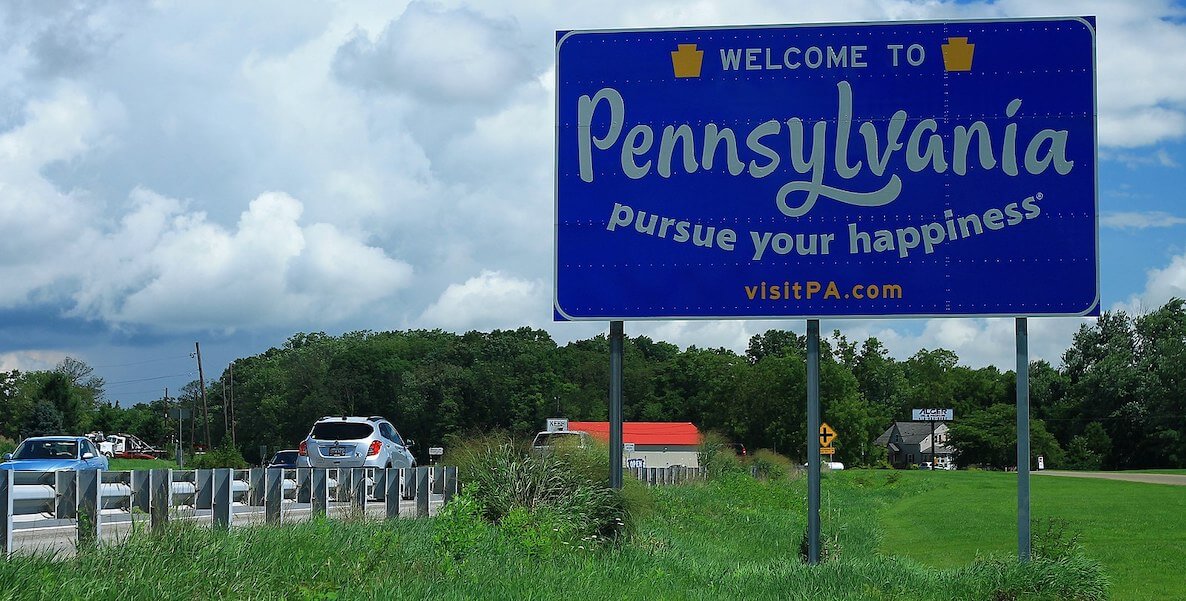Do you know someone who left Pennsylvania — or is considering doing so — to find greener pastures? You’re not alone. Nearly half of Pennsylvanians flirt with moving out of state, according to a recent survey commissioned by the Commonwealth Foundation.
Younger respondents show a higher propensity to look elsewhere. More than half of 18- to 44-year-olds have pondered leaving the Keystone State. That’s a lot of prime working-age people looking to get out.
Why are young people looking to jump ship? Answers vary but highlight some critical trends for policymakers to understand. Desire for a lower cost of living and lower taxes were the leading responses, as stated by 49 percent and 44 percent of respondents, respectively.
Many have already left. According to U.S. Census Bureau data, Pennsylvania lost about 40,000 residents between July 2021 and July 2022. Only seven states suffered larger out-migrations during the same period.
Lured by the “New New South”
The out-migration from Pennsylvania is part of a broader southward migration in the United States, as people flee northern blue states in favor of southern red states. Bloomberg recently reported on a massive movement of Americans — lured by “warmer weather, lower taxes, looser regulation, and cheaper housing” — to Florida, Texas, Georgia, the Carolinas, and Tennessee. These six states, dubbed the “New New South,” now contribute more to the national gross domestic product (GDP) than the Northeast.
Of this region’s major cities, Philadelphia is suffering one of the worst exoduses. Between July 2021 and July 2022, Philadelphia lost about 22,000 residents — a 1.4 percent drop and the largest one-year decline since 1977, according to Census data.
This mass departure hurts Philadelphia’s economy. Based on Internal Revenue Service data, Philadelphia lost $3.8 billion in adjusted gross income from outmigration taking place in 2020–21.
The out-migration from Pennsylvania is part of a broader southward migration in the United States, as people flee northern blue states in favor of southern red states
But Philadelphia has one thing going for it: At least it’s not New York City. The pandemic was particularly hard on the Big Apple. In 2021 and 2022, New York City lost the most people (more than 400,000 total, or 4.6 percent); Philadelphia ranked third on this measure in 2022.
New York lost more jobs, too. From February 2020 to April 2021, New York City suffered a 12 percent decline in jobs — roughly three times the national average. (Comparatively, Philadelphia lost 9 percent.) New York City has recouped fewer than half of the jobs it lost during the pandemic, leaving the city with a deficit of half a million jobs.
A bad business reputation
Pennsylvania has a unique opportunity to avoid New York’s pitfalls. But only if lawmakers get serious about making the Keystone State more business-friendly.
Pennsylvania’s business environment has long had a bad reputation. Considering 27 business-relevant metrics, from small-business growth and five-year business survival rate to GDP growth and venture capital per capita, WalletHub ranked Pennsylvania 44th among the states for starting a business.
This unfriendly environment has been a focal point for Gov. Josh Shapiro. Both on the campaign trail and in office, Shapiro has insisted that “Pennsylvania is open for business,” promising to accelerate corporate tax reductions, reform permitting, increase energy production, provide more educational options, and reduce the overwhelming regulatory burden that strangles local economies.
There is no shortage of red tape for Shapiro and Pennsylvania lawmakers to cut. Pennsylvania enforces 166,219 regulatory restrictions, 22 percent more than the national average.
Shapiro recently demonstrated his willingness to tackle regulations while rebuilding the I-95 bridge. Patting himself on the back for “speeding up bureaucracy,” Shapiro bragged in The Washington Post about how his administration “fast-tracked the permitting process to avoid delays” and “waived (some bureaucratic requirements) completely.”
The bridge collapse was a unique challenge. But if we can fast-track regulations for a highway, why not for the rest of the economy?
If Shapiro and Pennsylvania lawmakers truly want the Commonwealth to open for business, they must act quickly to stop hemorrhaging our workforce. They can start by reducing the punishing tax and regulatory burdens that inspire people and businesses to leave.
Otherwise, more Pennsylvanians will use the newly reopened I-95 only to tow their U-Haul trailers out of state.
Nathan Benefield is the senior vice president of the Commonwealth Foundation, Pennsylvania’s free-market think tank.
![]() MORE ON POLITICS FROM THE CITIZEN
MORE ON POLITICS FROM THE CITIZEN
Courtesy of Wikimedia Commons.





